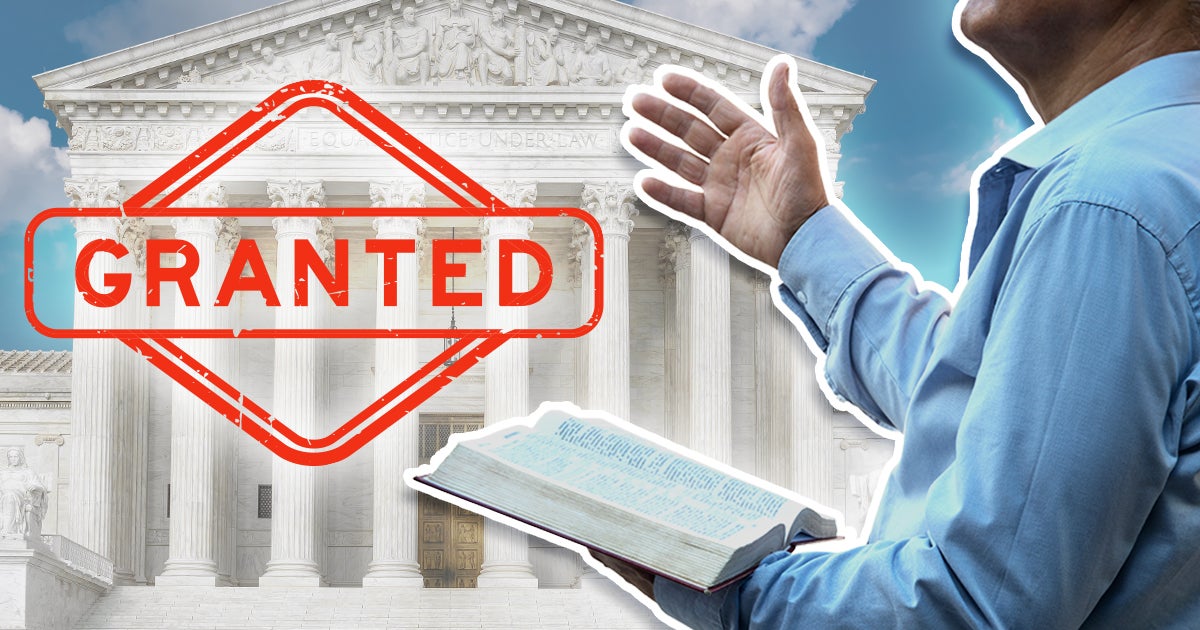
The U.S. Supreme Court will hear our case regarding Mississippi man blocked from suing city over civil rights violation.The Court will review precedent that has sharply divided courts for many years.
The Supreme Court of the United States announced that it will hear oral argument in the case of Gabriel Olivier who was barred by a lower court from challenging a Brandon, MS ordinance that prohibits religious speech on a public sidewalk near the city’s amphitheater. Olivier is represented by First Liberty Institute and the law firm Gibson Dunn.
“Every American has First Amendment rights to free speech; and every American has a right to their day in court,” Kelly Shackelford, President, CEO, and Chief Counsel for First Liberty Institute. “Both of these rights were violated for Gabe Olivier. The Supreme Court will now decide whether those rights will be protected for all Americans.”
Allyson Ho, a partner at Gibson Dunn said, “We’re pleased the Court agreed to take up this important case, and we look forward to presenting our arguments that Mr. Olivier is entitled to his day in court.”
Gabriel Olivier is an evangelical Christian who desires to share his faith with others. Standing outside of well-attended events, Olivier shares the gospel of Jesus Christ, hoping to have peaceful conversations and reach as many people as possible. He was silenced when the City of Brandon, Mississippi, adopted an unconstitutional ordinance that prohibited him from communicating his religious beliefs to others in a city park. Dissatisfied with the designated “protest” area that was so far removed from the crowds no one could receive his message, he moved closer to the people to share his message and City police arrested him for violating the ordinance. After paying a fine, he sued the city in federal court and challenged the constitutionality of the ordinance.
The district court dismissed his lawsuit without considering the merits, relying on a U.S. Supreme Court decision in Heck v. Humphrey that specifically applies to prisoners but prevents him from pursuing any future claims that his civil rights were violated. The U.S. Court of Appeals for the Fifth Circuit, too, ruled against Olivier. The Supreme Court now will intervene and resolve an issue that has sharply divided circuit courts—whether a person previously convicted under a law can bring a civil rights lawsuit to declare that law unconstitutional and prevent its future enforcement without running afoul of the Court’s previous decision in Heck.